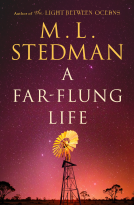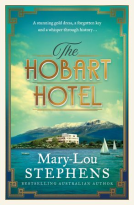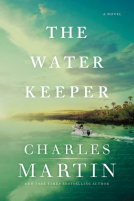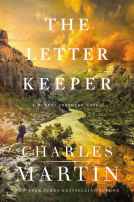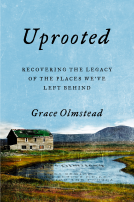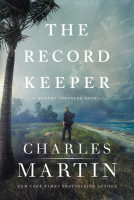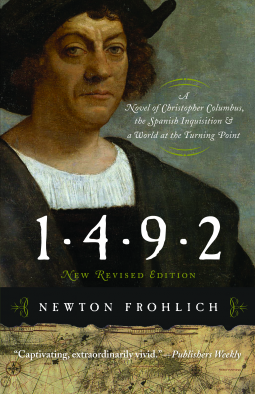
1492
A Novel of Christopher Columbus, the Spanish Inquisition, and a World at the Turning Point
by Newton Frohlich
This title was previously available on NetGalley and is now archived.
Send NetGalley books directly to your Kindle or Kindle app
1
To read on a Kindle or Kindle app, please add kindle@netgalley.com as an approved email address to receive files in your Amazon account. Click here for step-by-step instructions.
2
Also find your Kindle email address within your Amazon account, and enter it here.
Pub Date Oct 10 2016 | Archive Date Oct 24 2016
Description
Into this turbulent scene step a unique combination of strong-willed characters, brought to life with stunning realism by award-winning novelist Newton Frohlich. Cristoforo Colombo, ingenious sailor and explorer with one foot in the Jewish world and one in the Christian, is determined to reach the East via the West—if only he can find a way to finance his voyage. His Christian wife, Filipa, offers him social acceptance and valuable contacts while the beautiful and talented Beatriz rekindles in him the spark of his true identity—one he’s been forced to hide. The influential Santangel family, converted Christians, risk their fortunes to finance the voyage of discovery—and risk their lives when they resist the Inquisition. And the imperious Queen lsabel, who holds the power to change all of their lives, must choose at last whether to sponsor the grand scheme set before her.
Advance Praise
“Frohlich shows a fine gift for storytelling… The sheer power of the historical events is likely to keep the reader engaged.” — Booklist
“A rollicking, readable and fascinating story… For a grand, sweeping tale of the history of Spain at the end of the 15th century, 1492 is hard to beat.” — St. Louis Post Dispatch
Marketing Plan
Newton Frohlich is the award-winning author of The Shakespeare Mask: A Novel, as well as 1492: A Novel of Christopher Columbus, the Spanish Inquisition & a World at the Turning Point and Making the Best of It: A Common-Sense Guide to Negotiating a Divorce. A former lawyer in Washington, D.C., he devoted eight years to the research and writing of 1492. He has lived in Washington, D.C., the south of France, and Israel and now makes his home on Cape Cod with his wife, Martha, a musicologist.
Available Editions
| EDITION | Ebook |
| ISBN | 9780996048453 |
| PRICE | $15.95 (USD) |
Links
Average rating from 13 members
Featured Reviews
‘Cristoforo Colombo sat on a stool at a tavern in Lisbon, sipping red wine in the afternoon sun, waiting.’
1492. The Iberian Peninsula. Isabella of Castile and Ferdinand of Aragon (later termed The Catholic Monarchs by Pope Alexander VI in 1494), are determined to expel all non-Christians. Even those who had converted to Catholicism were not safe: many were accused of secretly practicing Judaism or Islam. The Muslim world controls many of the trade routes, the Christian world is looking to break this control, the Jewish people are viewed with suspicion.
Enter Cristoforo Colombo, convinced that he can reach the East by sailing West. He looks for a backer to finance his voyage. Colombo is viewed with suspicion by some who consider him overconfident. Colombo is also viewed with suspicion by those who believe that he is a ‘New Christian’ (as a convert from Judaism). His plan is brought to the attention of Queen Isabella, and he has to wait for her to make up her mind whether or not to support him.
In the meantime, the Inquisition is underway, and many lose their lives. Then in 1492 Isabella and Ferdinand issued the Alhambra Decree, which gave the Jews in their kingdoms four months to either convert to Catholicism or to leave.
In this novel, while Cristoforo Colombo is the major character, it is his life before 1492 rather than his voyages that is the focus. His wife, Filipa, is a Christian who provides him with valuable contacts as well as social acceptance. Later, Beatriz reminds him of his past. And there’s a tension here: will Isabella support his voyage if she knows he is a New Christian? Will he ever get to make the voyage given the parlous state of Ferdinand and Isabella’s finances?
I enjoyed this novel. While it gave me a new and different look at Cristoforo Colombo, it also reminded me of the less comfortable aspects of the 15th century history of the Iberian Peninsula. It’s not a novel about Cristoforo Colombo’s voyages, instead it’s more about the reasons why those voyages were undertaken. And who wouldn’t want to escape the Inquisition?
Note: My thanks to Blue Bird Press and NetGalley for providing me with a free electronic copy of this book for review purposes.
Jennifer Cameron-Smith
Readers who liked this book also liked:
We Are Bookish
General Fiction (Adult), New Adult, Romance


